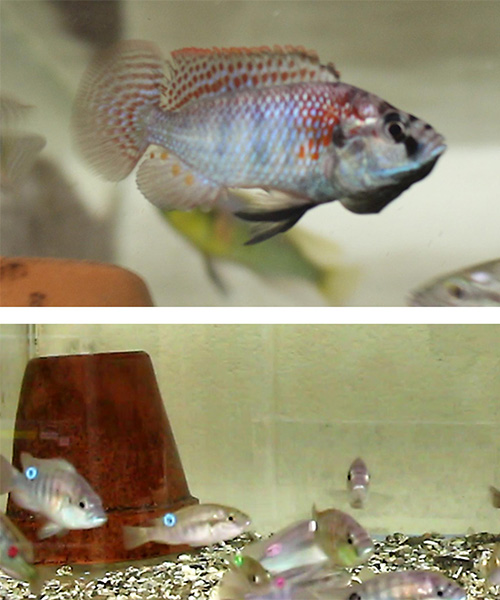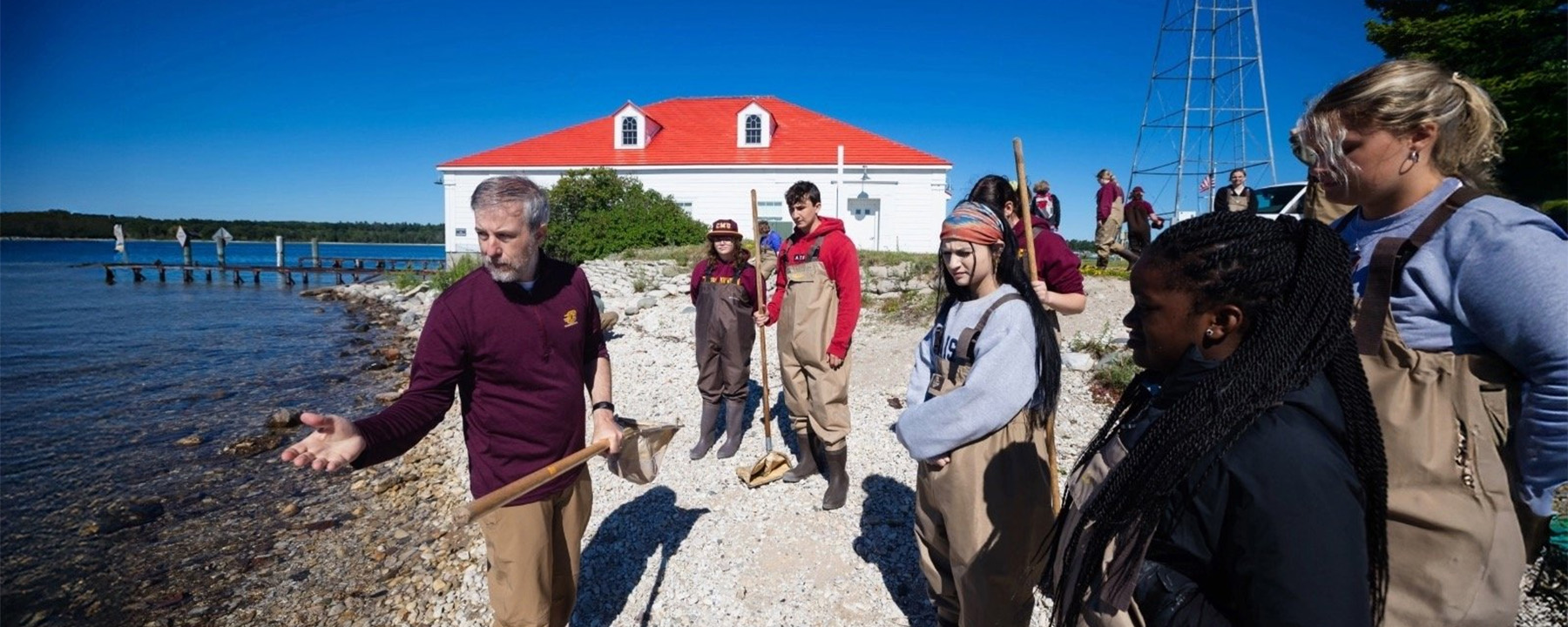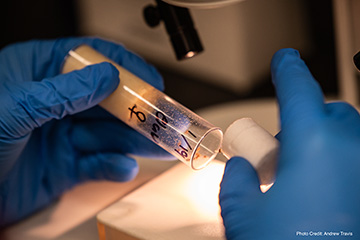Biology Research Opportunities
Get out of the classroom and into the field: Real-world learning starts here
At Central Michigan University, biology isn’t just something you study, it’s something you do. Experiential learning is woven into every step of your journey as a biology major.
Our faculty believe that hands-on, real-world experience is key to shaping confident, capable scientists, and that starts from day one.
From your very first year, you’ll find yourself diving into opportunities that go far beyond the textbook:
- Join a research lab and work side-by-side with professors on active scientific discoveries, contributing to real projects with real impact.
- Complete an internship and apply what you’ve learned in settings like hospitals, biotech companies, research institutions, or environmental organizations.
- Take lab courses that inspire curiosity, not repetition. Many follow the CURE (Course-Based Undergraduate Research Experience) model, giving you the chance to ask real questions, analyze data, and even uncover brand-new insights.
At CMU, your biology degree is built on more than lectures and exams—it’s built on experience, exploration, and discovery.
Inside the lab: Research in action

Dr. Peter Dijkstra is leading innovative research on how social stress impacts brain function. His recent work has gained international attention for exploring whether low social status can cause stress-related brain damage, a question that could have implications for understanding human diseases like dementia and Parkinson’s. Dijkstra and his team, including 40 undergraduate and 10 graduate students, use African cichlids to study how social hierarchy influences brain chemistry and oxidative stress.
In his latest study, Dijkstra found that both dominant and subordinate male cichlids suffer brain damage from social stress, though in different regions of the brain. The findings, published in Frontiers in Neuroscience, suggest that social rank can affect molecular stability and may contribute to neurological decline. This research is not only enhancing our understanding of brain health but also giving CMU students the opportunity to engage in high-impact, hands-on research that reaches beyond the lab and into the global scientific community.

Dr. Kevin Pangle is leading a groundbreaking study on Coho salmon populations in Lake Michigan. His work focuses on understanding how natural and hatchery environments contribute to the salmon population, and more importantly, which conditions produce the healthiest fish.
To unlock these insights, Pangle and his student researchers use otolith chemistry. Otoliths, tiny structures in a fish’s inner ear, carry a chemical signature that reflects the waters the fish has traveled through. By analyzing these natural records, the team can trace Coho salmon back to the exact streams where they hatched and assess which habitats best support their growth and survival.
This research not only advances ecological knowledge but also helps inform fisheries management and conservation efforts across the Great Lakes region. Pangle’s collaborative work with state agencies and fellow biologists aims to ensure that future generations can continue to fish, study, and enjoy Coho salmon in Michigan’s waters.

Central Michigan University is playing a vital role in a major NIH-funded research effort aimed at unraveling the mysteries of neurodegenerative diseases like Alzheimer’s. In partnership with the University of Florida, this project investigates the complex interplay between two key brain proteins, TDP-43 and Tau, and how their interactions may drive disease.
CMU biology professor Dr. Michelle Steinhilb, a co-investigator on the project, is leading research using fruit fly models to examine how these proteins behave during normal aging and in disease states. Meanwhile, collaborators are digging into the molecular details of TDP-43 and Tau interactions using advanced techniques like NMR and surface plasmon resonance.
What sets this study apart is its comprehensive, lifespan-based approach, offering insight into how these proteins behave in real-world scenarios, not just in artificial lab conditions. The team is also testing small molecules and peptides that could potentially break the harmful bonds between TDP-43 and Tau, paving the way for new treatment options.
This groundbreaking research could lead to targeted therapies that don’t just manage symptoms, but tackle the root causes of Alzheimer’s and other neurodegenerative diseases.
BIO 403: Undergraduate Research
If you're a motivated junior or senior majoring in biology, this course is your chance to take research to the next level. From building your own hypothesis to leading a full investigation, you’ll get hands-on experience every step of the way. Work one-on-one with faculty mentors and tackle a project that’s all about your goals, your interests, and your future.
To enroll, you must have completed at least 20 credit hours in biology with a minimum 3.0 GPA. You are expected to meet with a faculty member by the midpoint of the preceding semester to design a faculty-approved research proposal. Registration requires a formal research contract and departmental chair approval.